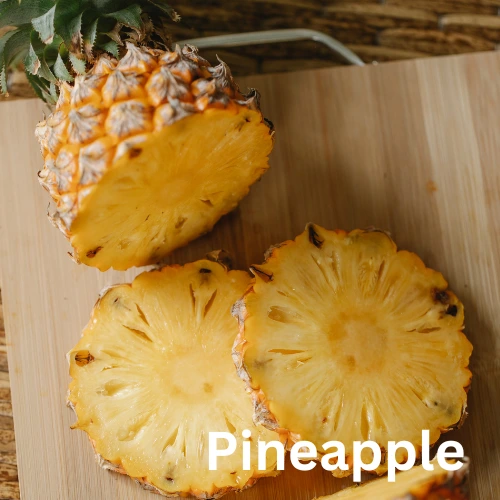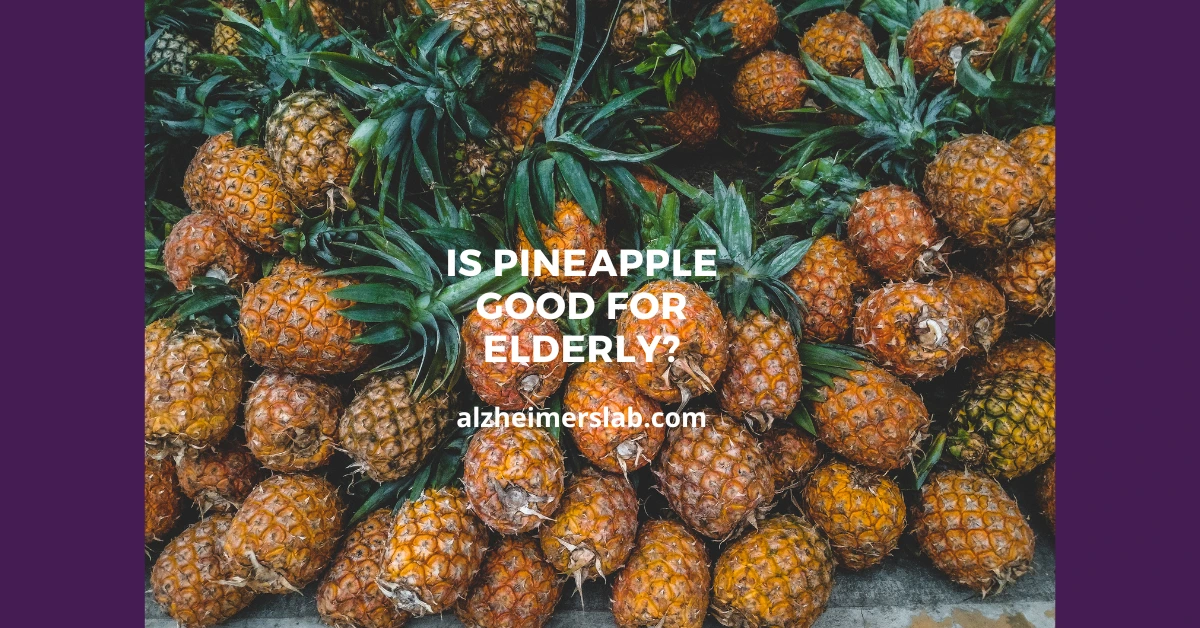Is Pineapple Good for Elderly?
Pineapple is one of the most beloved tropical fruits around the world. It is a delicious and healthy option for people of all ages, but it is particularly beneficial for the elderly. In this blog post, we’ll explore the benefits of pineapple for the elderly, as well as some of the concerns that may arise when consuming this fruit. So let’s dive in!
What makes pineapple good for the elderly?
Pineapple is packed with nutrients

Pineapple is a great source of many essential nutrients that the body needs to function properly. It contains high amounts of vitamin C, which can help boost the immune system and fight off infections. Pineapple also contains vitamin B6, which is important for maintaining healthy brain function and reducing the risk of cognitive decline. Additionally, pineapple is a good source of fiber, which can help improve digestion and prevent constipation.
Pineapple has anti-inflammatory properties
As people age, inflammation can become a major issue that contributes to a wide range of health problems. Fortunately, pineapple contains a group of enzymes called bromelain, which has been shown to have anti-inflammatory properties. This can help reduce inflammation throughout the body and lower the risk of chronic diseases such as heart disease and arthritis.
Pineapple may help improve bone health
As people age, their bones become more brittle and prone to fractures. Pineapple contains manganese, which is an essential mineral that helps maintain healthy bones. Additionally, the vitamin C in pineapple can help improve calcium absorption, which is important for maintaining bone density.
Pineapple is low in calories and fat
One of the challenges that many elderly people face is maintaining a healthy weight. A pineapple is a great option because it is low in calories and fat, making it an excellent choice for snacking or incorporating into meals. It can help fill you up without adding unnecessary calories, which is important for maintaining a healthy weight.
Pineapple is easy to eat and digest
As people age, their digestion can become more delicate and sensitive. Pineapple is easy to digest and does not require much effort from the digestive system, making it a great option for elderly people who may have trouble eating more complex foods. Additionally, pineapple is a great option for people who have a denture or chewing issues, as it can be easily cut into smaller pieces or blended into a smoothie.
Concerns about pineapple consumption for the elderly
While pineapple is generally safe and beneficial for the elderly, there are a few concerns that may arise. Here are a few things to keep in mind:
Pineapple can cause mouth irritation
Some people may experience mouth irritation or sensitivity when consuming pineapple. This is due to the enzymes in pineapple that can break down proteins, which can cause the tongue and cheeks to feel sore or tender. If you experience this issue, try cutting the pineapple into smaller pieces or cooking it before consuming it.
Pineapple may interact with certain medications
Pineapple contains bromelain, which can interact with certain medications such as blood thinners or antibiotics. If you are taking any medications, it is important to speak with your doctor before consuming large amounts of pineapple or taking supplements that contain bromelain.
Pineapple may cause heartburn
Pineapple is acidic, which means that it may cause heartburn or acid reflux in some people. If you experience these issues, it may be best to limit your intake of pineapple or consume it in moderation.
What does the research say?
A study done by Naresuan University, says that consuming pineapple can be good for the heart in rats that have a high-cholesterol diet. The study found that eating pineapple reduced weight gain, lowered bad cholesterol, and reduced inflammation in the heart.
Pineapple also had antioxidant properties that helped to protect the heart. The study suggests that pineapple could be a good option for people who want to improve their heart health, especially if they have high cholesterol.
Another study by the Mashhad University of Medical Sciences says that scientists wanted to see if pineapple juice and extract could improve memory in mice with cognitive deficits caused by a drug called scopolamine.
They used an object recognition task to test the mice’s memory and found that the juice and extract of pineapple improved the mice’s memory compared to those that only received scopolamine.
The results suggest that pineapple has a protective role against scopolamine-induced amnesia and may have the potential to manage cognitive disorders. The researchers believe that this study’s findings are essential because there are currently few drugs available to improve learning and memory. They recommend further research to confirm the memory-improving potential of pineapple in the treatment of various cognitive disorders.
Conclusion
A pineapple is a great option for the elderly due to its high nutrient content, anti-inflammatory properties, and ease of digestion. While there are a few concerns to keep in mind, these can be easily managed by adjusting the amount or preparation method of the pineapple.
Adding pineapple to the diet can be a fun and creative process, and can provide a variety of health benefits. So next time you’re at the grocery store, consider picking up a fresh pineapple and incorporating it into your meals. Your body will thank you!
Have you tried incorporating pineapple into your diet? What is your favorite way to enjoy this tropical fruit? Let us know in the comments below!

